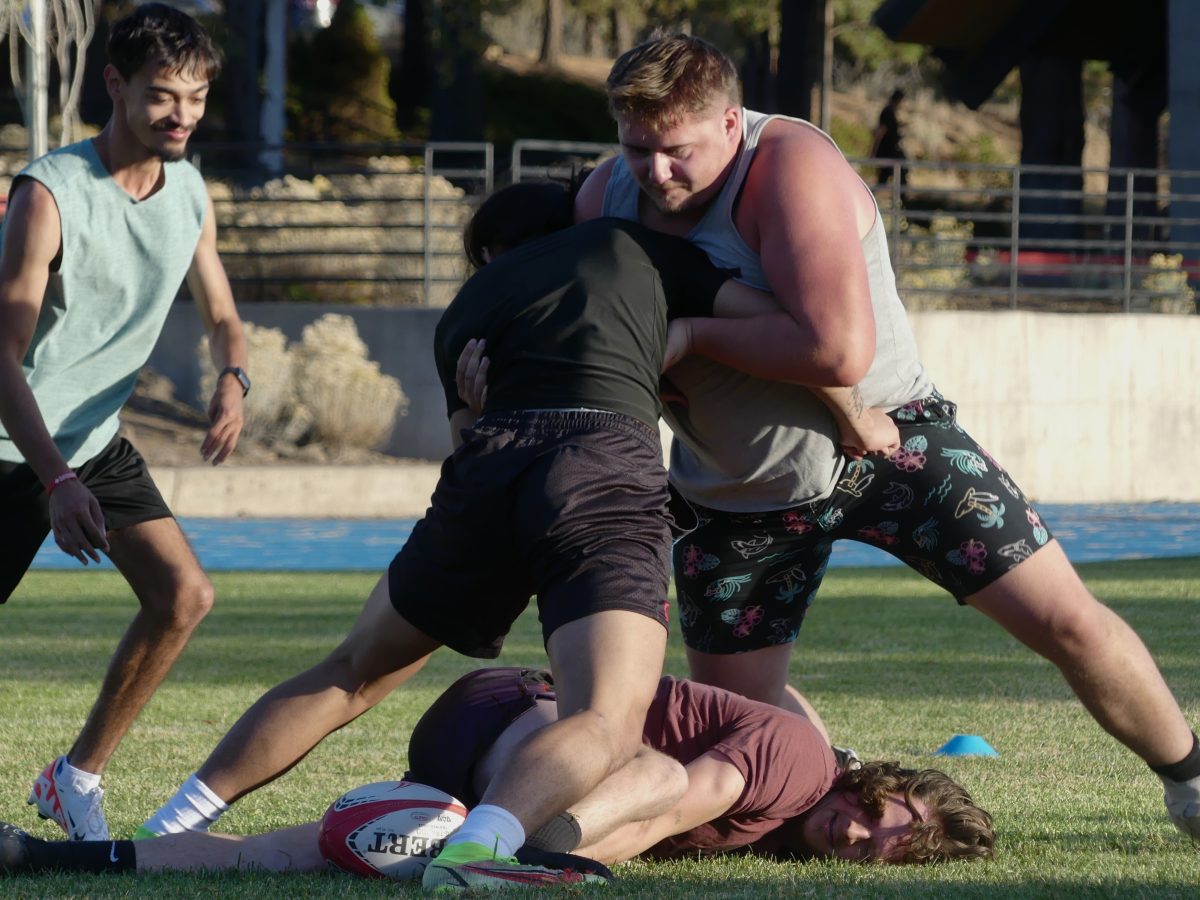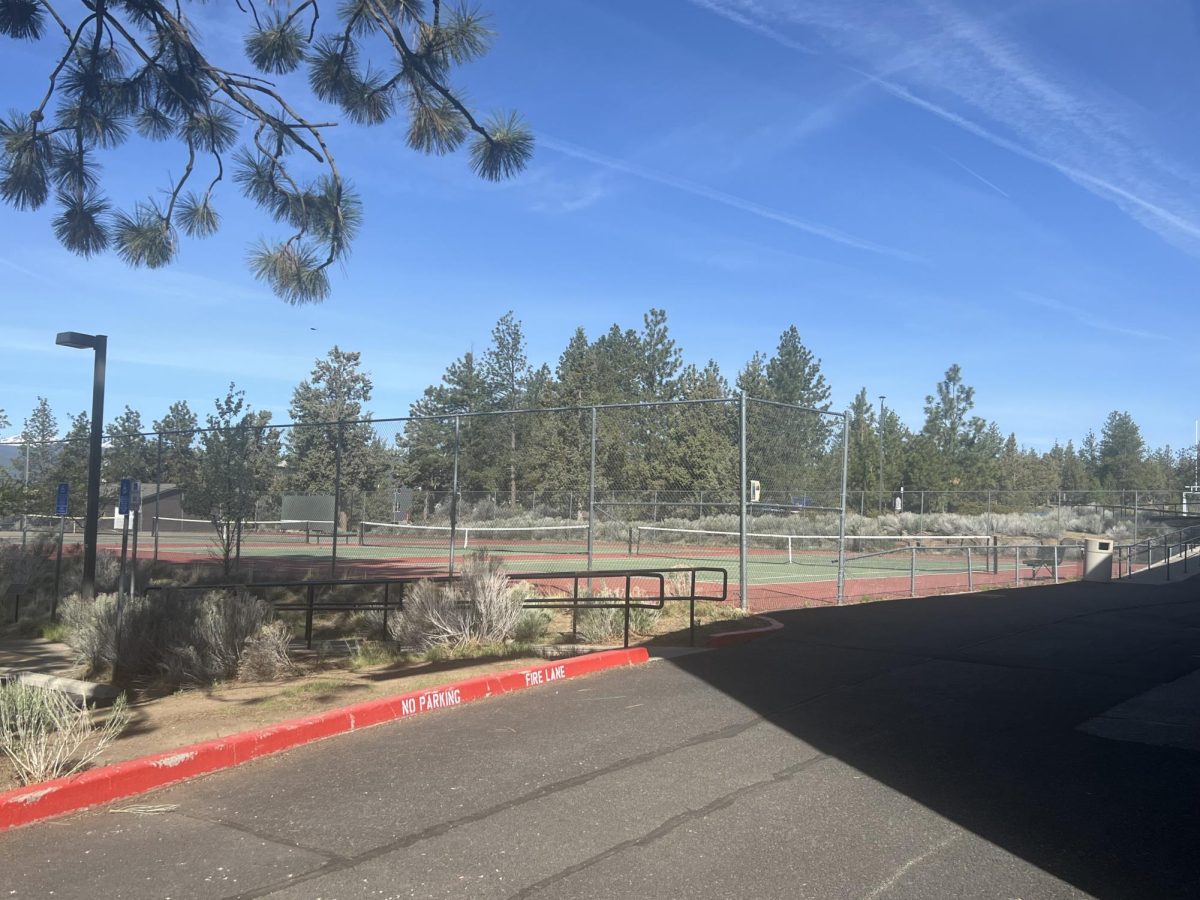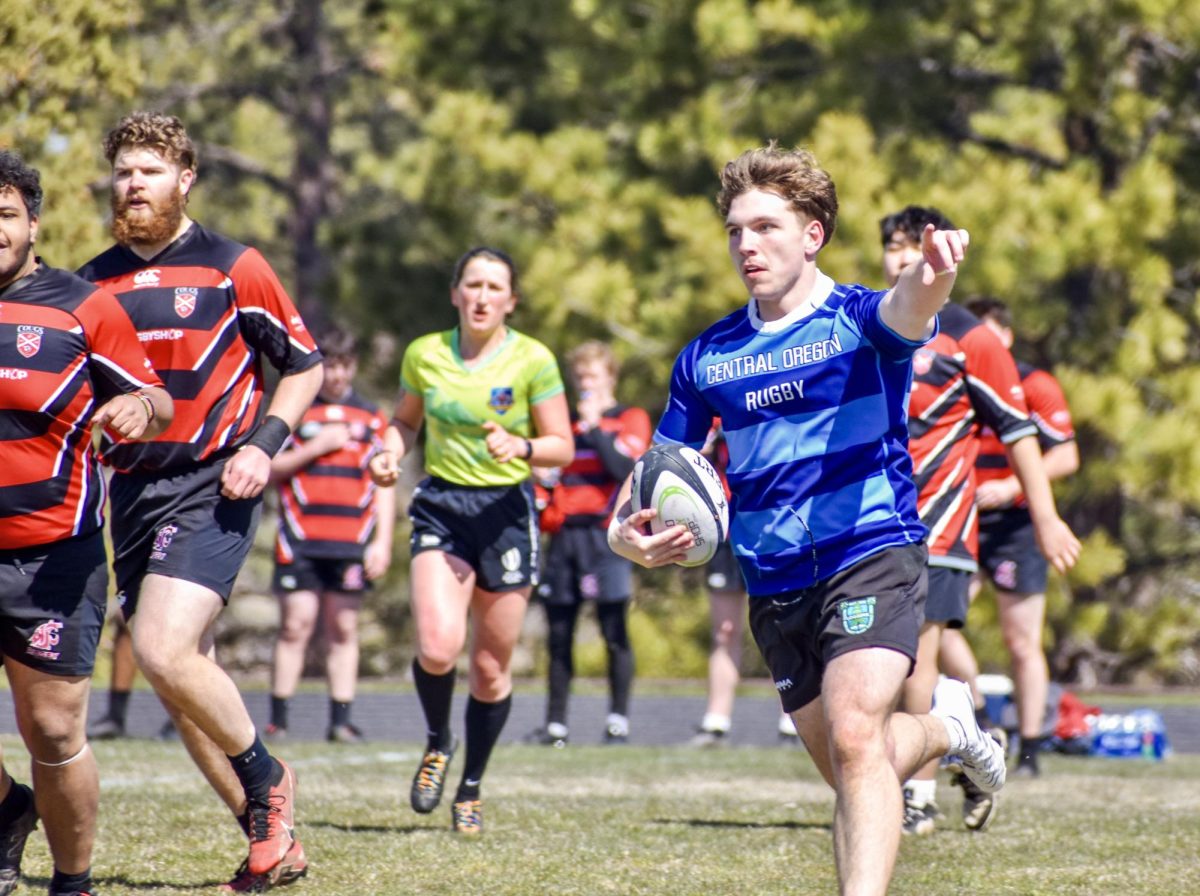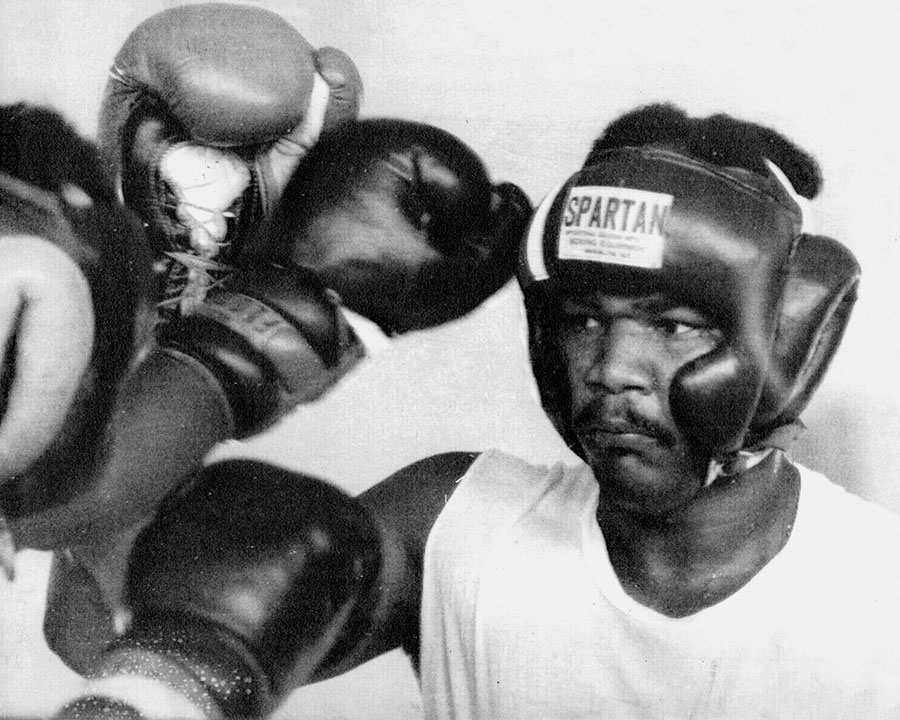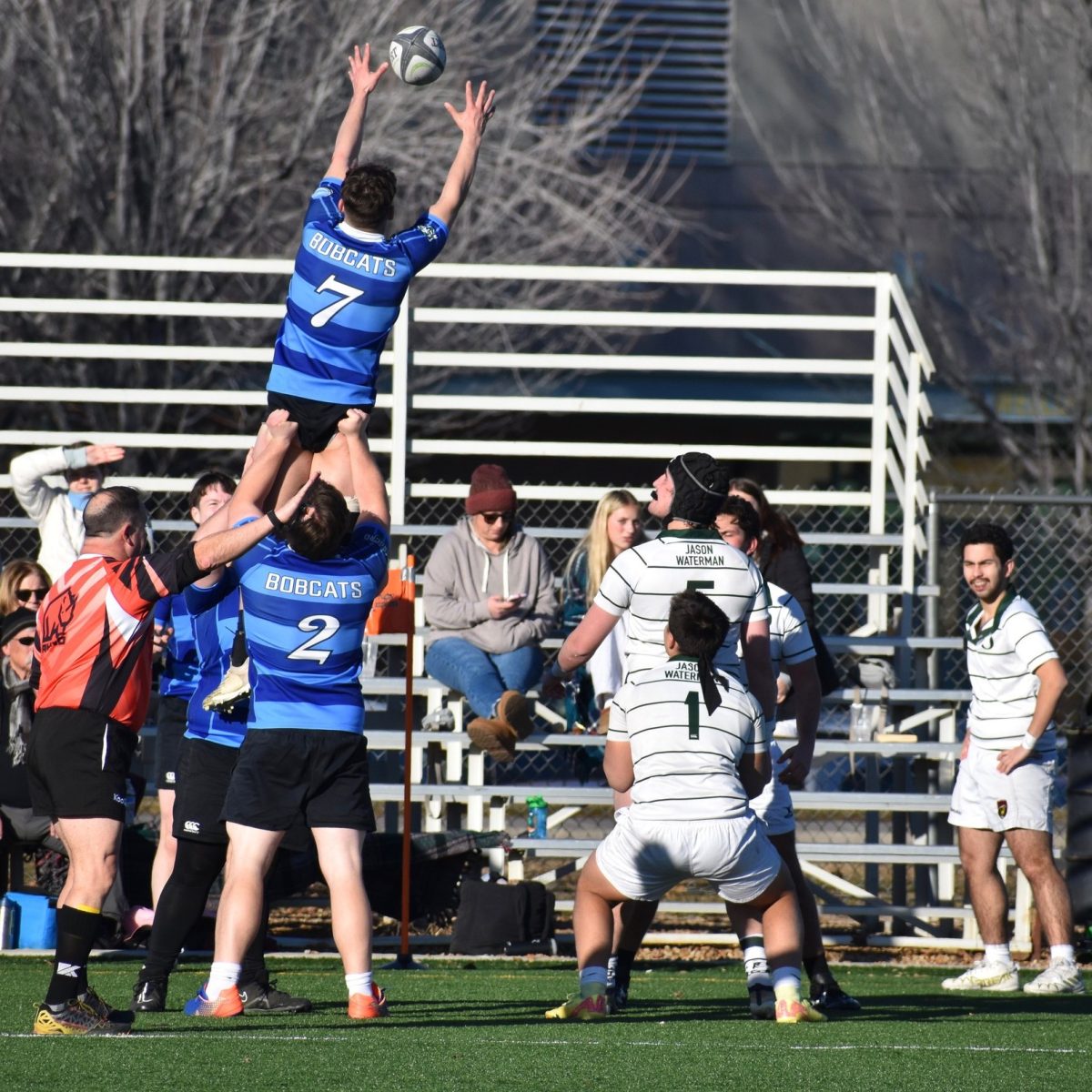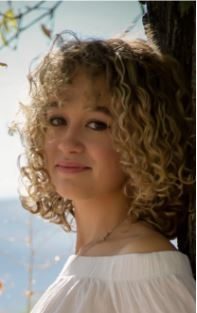Two years after COVID-19 restrictions were lifted, Central Oregon Community College’s historically strong men’s rugby team still struggles to maintain an eligible roster; changes to the coaching staff, late recruitment efforts, having to forfeit games due to an insufficient roster and the ineligibility of past recruiters place the team in a difficult position to attract new players.
The Bobcats forfeited their first match of the 2023-2024 season against Lewis & Clark’s and Reed College’s combined team due to insufficient players.
The team must have at least 15 players to play a competitive match and ideally show up to a match with 18 players for substitutions. Fewer players than last season present the team with the logistical struggle of being eligible for matches and developing player skills during practice.
The team historically recruits most new players to the sport during move-in day at the Wickiup Residence Hall. Efforts to recruit on move-in day in Sep produced fewer new players than in the last couple of years. The turnover of eligible players and coaching staff also caused a late start to recruiting efforts for the fall season.
The men’s rugby program was started in 2012 by Woody Bennett and in only three seasons built a strong program. In 2015, the team went 8-1, winning the Pacific Northwest Rugby Union Small College League.
“Bennett basically created the tradition at COCC as far as I understand it”, said Joshua Motenko, Assistant Director of Clubs and Intramural Sports.
Bennet retired after the pandemic and Adam Pendergraft and Lance Tamashiro were hired as head coach and assistant coach. Pendergraft was the head coach of the team for the ‘21-’22 and ‘22-’23 seasons and oversaw a healthy roster but moved away from Oregon.
Much of the roster that played under Pendergraft became ineligible to play after graduating or prioritized other responsibilities. “This is kind of a rebuilding year,” said Motenko
Matt Burke has since been hired as the new head coach with Tamashiro returning as assistant coach.
“Coach Matt Burke, who’s been another fixture in the rugby community for 15 years, started some of the high school boys’ and girls’ rugby programs locally, has been the head coach of the local women’s adult team The Lady Rough Riders. He’s just been coaching forever, and we are lucky to have him”, said Motenko.
Burke having fewer returning players and his late arrival to the team hindered recruiting efforts for this season. Motenko says two misconceptions about rugby may also explain why there are fewer new players.
“People may feel I don’t have the right body type. You think everybody needs to look a certain way and in reality, there’s a position on the field for every body size, every speed, every level of person”, said Montenko.“We have a tradition of turning people who’ve never played the game into players.”
The other misconception Motenko mentioned was the potential for injury in the sport.
“In other sports with contact you’ve got padding and in rugby, you have less padding therefore the tactics of the game need to be taught safely. So it’s almost intrinsic in the sport you have to learn to tackle the right way instead of just going out there and hitting somebody. You have to learn to wrap somebody up and take them down without injuring yourself.”
At least two players this season have been unable to play this year due to injuries off the pitch.
Burke agreed with Motenko that people are reluctant to join because they don’t feel they have the right body type and fear injury.
“The World Rugby Council made safety a priority in terms of reducing the amount of injuries and concussions. They’ve continually lowered the height of the tackle. Whereas you used to be able to tackle around the shoulders, now it’s below the chest. there’s a lot of emphasis on safety and technique,” said Burke.
Burke when asked why he has been involved in rugby said, “There’s a real strong bond that develops with your teammates through playing the sport. There’s a lot of chaos, there’s a sense of danger, which gives you that adrenaline rush, and then when it’s over it’s kind of a relief, but you’re exhilarated at the same time and that creates a bond. It’s hard to describe, but once you get into the sport, it becomes apparent.”
This sentiment is shared by both new and returning players.
Wyatt Sanders is an exploratory student at COCC and a returning player who joined rugby as an alternative to football.
“I’d have to say the community and the brotherhood that rugby is because on the pitch, it’s all one-on-one and we’re here to be competitive and play a game, but at the same time off the pitch, it’s as what I said, it’s a brotherhood. We’re family and we have that mutual respect,” said Sanders.
Sanders later had to quit the rugby team due to academic requirements.
The rugby team requires students to take 9 or more credits to be eligible to play. Playing on the team would take at least another 6 hours per week if an athlete were to attend practice twice a week and attend an at-home match.
If a student is working part-time in addition to taking a considerable course load (9 credits equates to about 20 hours of out-of-class work per week on average).
Team captain Owen Powell recognizes the commitment it takes to balance athletics with other responsibilities. “It’s tough. A lot of us work full-time or go to school full-time. I work full-time and go to school full-time. It’s hard a hard sell to some people that either don’t want to be in a club sport mentality to come and give 2 hours on Tuesdays and Thursdays and your entire Saturday”, said Powell.
Powell remains optimistic saying, “If we can keep some of the momentum from these last two years, I think we’ll be able to keep it alive.”
The playoffs for the fall season begin on Nov. 11.
Those interested in playing rugby during the spring season starting next quarter can email Matt Burke at [email protected].


